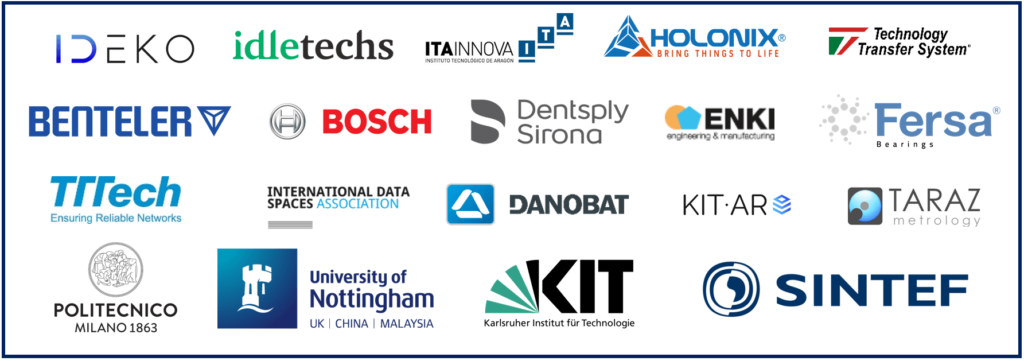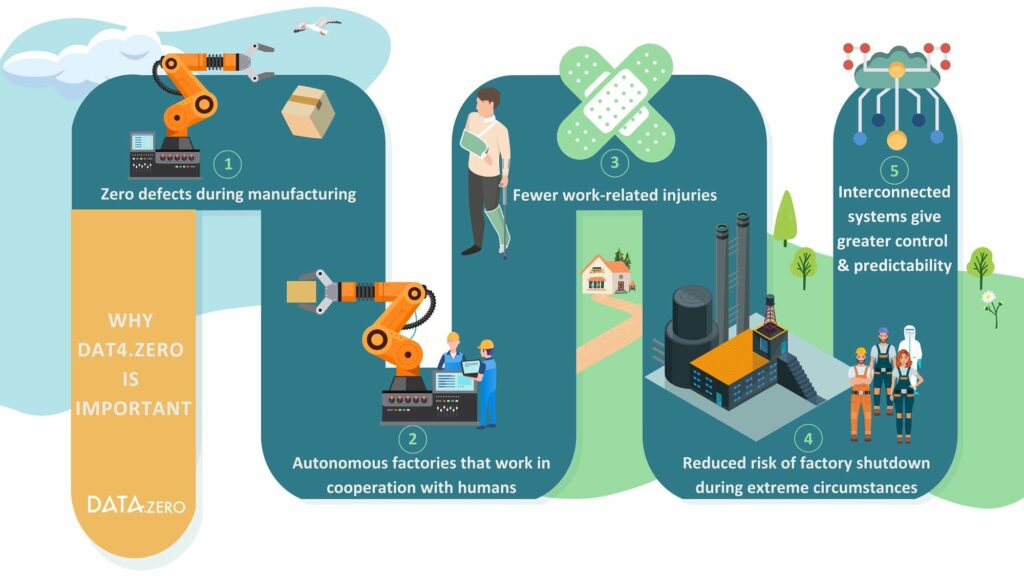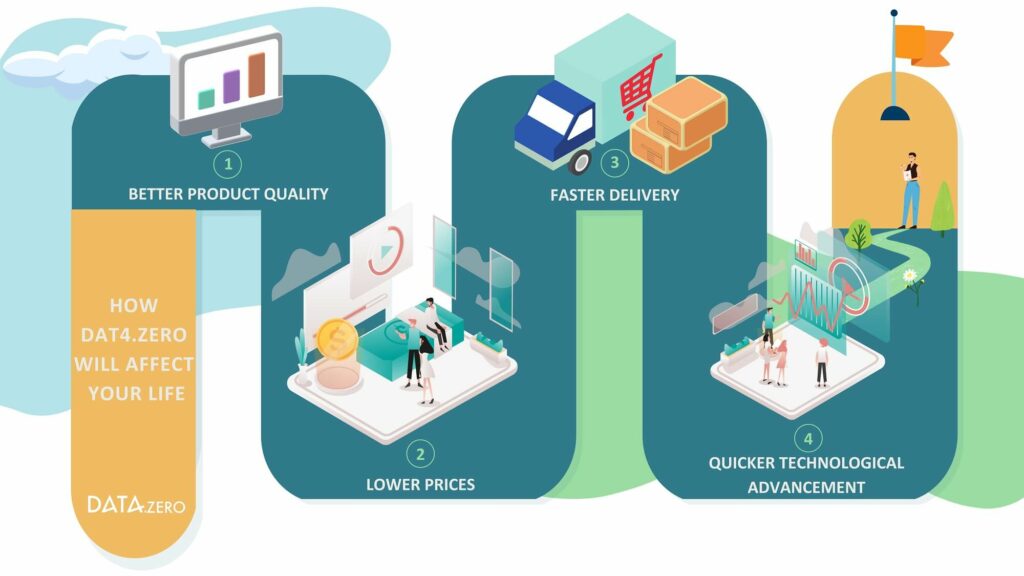June 05, 2023
Zero defect manufacturing means ensuring that manufacturing processes are performed with no defects or errors. This has a few obvious advantages: costs are reduced, less material is wasted and the time to manufacture a finished product is reduced. This all leads to greater production efficiency. However, while the definition and goals of zero defect manufacturing are quite straightforward, achieving those goals can be a challenge.
The Dat4.Zero project aims to approach the challenge of zero defect manufacturing by utilising Industry 4.0 and the data that is currently generated in manufacturing production lines. By combining all sources of manufacturing data into one location, all information can be accessed with ease, enabling much greater levels of analysis. This will enable much more complete predictions to be made that can enable better compensation methods for defect reduction. In addition, the Dat4.Zero project will involve the development of smart sensors and measurement solutions. These measurements will be capable of obtaining real-time information about manufacturing processes that can be used to make adjustments to the process settings and prevent part defects from occurring.
DAT4.zero will support European factories of the future by:
- Increasing equipment productivity
- Reducing ramp-up time
- Decreasing time-to-market of existing and evolving high-value products
- Increasing product quality
About the project
The most direct route to achieving the goal of zero defect manufacturing is by increasing accuracy. This reduces the uncertainty in the manufacturing process to the point that there is no room for a defect to occur. Unfortunately, this route is nearly impossible to achieve in practice. There are so many different aspects of a production line that variability is bound to occur. Machines aren’t 100% accurate, incoming material can vary, and even things like the weather can affect the machining conditions. These variations may be small, but when manufacturing very delicate parts with precise specifications much smaller than a millimetre, they can be significant impactors to overall part quality. As a result, slight variations in part production is an unavoidable aspect of manufacturing.
Instead, the more achievable route to zero defect manufacturing is not to try to eliminate these variations, but to understand and account for them as part of the manufacturing process. By developing a robust compensation strategy, it can be possible to tailor a later manufacturing process to account for each particular part’s variation. If the causes of potential defects are detected early enough, such as temperature changes in the manufacturing environment, it can also be possible to adjust the manufacturing process to prevent any defects from being produced in the first place.
To enable the compensation required for zero defect manufacturing, high quality measurements of the manufacturing process are needed in order to detect any causes of part defects. This involves measurement of the machining process, the part and even the environmental conditions. These measurements then need to be analysed to identify the appropriate compensation methods. This requires a complete part tracking infrastructure within the factory, capable of seeing each unique part through from start to finish, accruing measurement and manufacturing data along the way.
DAT4.zero Consortium
DAT4.zero is a project supported by the European Union. The project has 20 European partners who will work to improve quality in European factories. Innovative technologies will gather and analyse data from manufacturing processes and give businesses greater control of what happens during production.
In the end, consumers will benefit by receiving products of higher quality, faster. European companies will become more autonomous and achieve greater competitiveness in global markets.

The importance of smart factories
DAT4.zero will help revolutionize manufacturing by giving businesses tools to succeed in the Fourth Industrial Revolution. In this system, smart factories use the power of digitalisation to connect the physical to virtual worlds. This system has many benefits, including:

- Zero defects during manufacturing
- Autonomous factories that work without humans
- Fewer work-related injuries
- Reduced risk of factory shutdown during extreme circumstances (i.e. pandemics)
- Interconnected systems give greater control and predictability
The benefits of DAT4.zero
As an end-user, you have probably experienced that the things you buy sometimes have errors and faults. Whether it be your smartphone, car, or table, there is always a risk of defects. As companies transition into industry 4.0, you can expect the following benefits:

- Better product quality (zero defects)
- Lower prices
- Faster delivery
- Quicker technological advancement
ACKNOWLEDGMENTS
This project has received funding from the Horizon Europe programme under the Grant Agreement No. 101092021
This article has been extracted and freely adapted from the DAT4.zero official website and Proposal.

